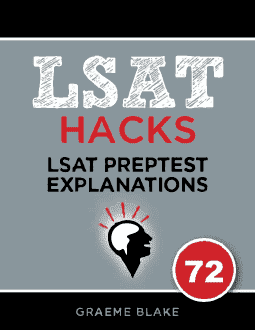DISCUSSION: The “main point” is very similar to the “primary purpose”. Actually, I couldn’t tell you how the two question types are different. Technically, it’s the difference between “what” and “why”, so this question is asking “what does the passage say?”.
In practice though, just pick the answer that best describes the passage and its argument. The author’s point is that we should use a less strict standard: clinical equipoise.
The passage is an argument. Some of the answers are merely descriptive. The right answer should say that the passage makes a recommendation.
Also, remember that an answer is not right just because it’s true. A couple answers are true, but they do not describe the main point.
___________
- Not quite. Strict equipoise doesn’t jeopardize any ethical standards. Instead, it jeopardizes our ability to conduct experiments.
- I was tempted by this. But the argument is not talking about ethical requirements in general. Instead, it’s talking about clinical vs. theoretical equipoise.
Further, the passage is not descriptive. The passage is an argument. But this answer is merely descriptive. - This is true, according to the passage, but you’re not looking for what’s true. The point of the passage was to argue for a different ethical standard.
- CORRECT. This correctly describes the passage as an argument. The author’s point was that we should use clinical rather than theoretical equipoise, which was unnecessarily restrictive.
- This is not really a good description of the passage. This might be true, according to the passage, but we’re looking for the main point. The point is not just that theoretical equipoise is inadequate. Instead, the point is that we should use clinical equipoise.


Leave a Reply